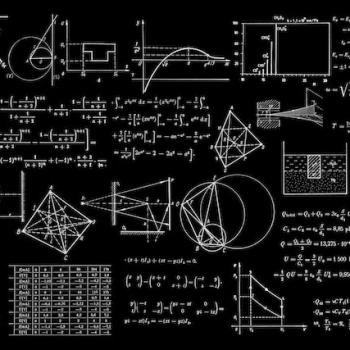
I love me some team sports. The NCAA basketball tournament during March Madness? With Dick Vitale, I say, “Bring it, baby!” I continue to hope that the Louisville Cardinals will before long make it back to the Final Four. The World Series? I’ve been an Atlanta Braves fan for decades and still remember the joy I felt as I watched them win the series 4-2 against the Cleveland Indians in1995. And my favorite, the NFL playoffs leading up to the Super Bowl? Few things in life are more exciting, especially if my Green Bay Packers are involved.
To be clear, I love team competitions when they are truly “sport.” But I hate them when they bleed into the parts of our lives that are beyond the home team vs. visitor mindset, the false dichotomy between winning vs. losing.
The Physics of Team Sports
In an admittedly weird way, it’s like the difference between Newtonian and quantum physics. The laws of Newtonian physics beautifully articulate how time and space and movement are observed by the naked eye. But those brilliant scientific principles crumble when the vision-enhanced eye is able to peer into the sub-atomic realm. There, Newton’s laws of motion seem non-sensical, ridiculous even, and an entirely different set of quantum principles is needed to explain the very different reality of life in that space.
For this reason, I’m ambivalent about today’s readings. The part that troubles me the most is the first reading in Acts where Paul writes, “There is no salvation through anyone else, nor is there any other name under heaven given to the human race by which we are to be saved” (4: 12). Tragically, this passage has been used throughout history by Christians to affirm that Team Jesus is the only one worth suiting up for, and all else be damned. Literally.
It has been used to justify discrimination and even cruelty toward those outside narrow tribal boundaries. It has been used to rationalize pulling the plug on ecumenical dialogue. And worse, much worse. The Crusades? Yes, that systematic extermination of those not on the “right” team is one of the greatest failings of the Catholic Church, my own faith heritage. And that’s saying something. We Catholics have gotten a number of things right over the last two millennia. But if we’re being honest, we’d have to admit that a lot of what we’ve done in the name of Christ throughout history would make the Jesus of Nazareth we meet in the gospels not just cringe but weep openly.
A Bit of Hope
Fortunately, today’s gospel reading helps to address the harmful interpretations of the verse we heard in Acts. It’s a well-known tale, Jesus as the Good Shepherd. As I’ve written before, we need metaphors. And as metaphors go, this is a fine one, at least for the people of Jesus’ time when herding sheep was a more common activity than I see where I live today.
Despite this, what heartens me is that this problematic passage is followed later by lines from John’s gospel where Jesus says, “I have other sheep that do not belong to this fold. These also I must lead, and they will hear my voice, and there will be one flock, one shepherd” (10: 16).
One flock.
Jesus’ words point to oneness, unity, wholeness. And I can’t believe it is applicable to religion only. As I’ve written elsewhere, I believe wholeness is where we came from and where we will return, our alpha and our omega. So if that’s the case, it doesn’t make sense to apply a team-based competition paradigm to life outside of sport.
Conservative vs. liberal. Republican vs. Democrat. Protestant vs. Catholic. Christian vs. well, everything non-Christian. Public school vs. private school. Rural vs. urban vs. suburban. High school educated vs. college educated. C-suite vs. hourly employee. White vs. Black. Rich vs. poor. Priest vs. parishioner. And the list goes on.
But to be clear, I’m not suggesting we get rid of these terms. Quite the contrary. We need these labels. How else can we communicate both within and outside of our “teams?” But just because something is practically useful doesn’t mean that it’s spiritually sound.
Team Sports Have Their Place
The problem I have isn’t organizing ourselves into teams. We need to do that to navigate the complicated reality we know of as life. The problem is that we forget where we came from, that we’re really all part of one flock.
If the Packers do well this coming season, you’ll probably hear me from wherever you live screaming joyously at every touchdown. I might even spar with my husband who tends to favor one of their big rivals. I’m not above an in-your-face taunt when the extra point goes through the uprights for my team. But I’m not going to joke or jab when it comes to life outside of sport.
The “teams” we’re on help us make sense of our lives and give us a shorthand for discussion with each other in a complex world. It gives us a glossary to use on a path forward with like-minded others. And that’s helpful. But it’s not the end game.
There’s really just one flock. Teams are great as long as we remember . . . there’s just one flock.











